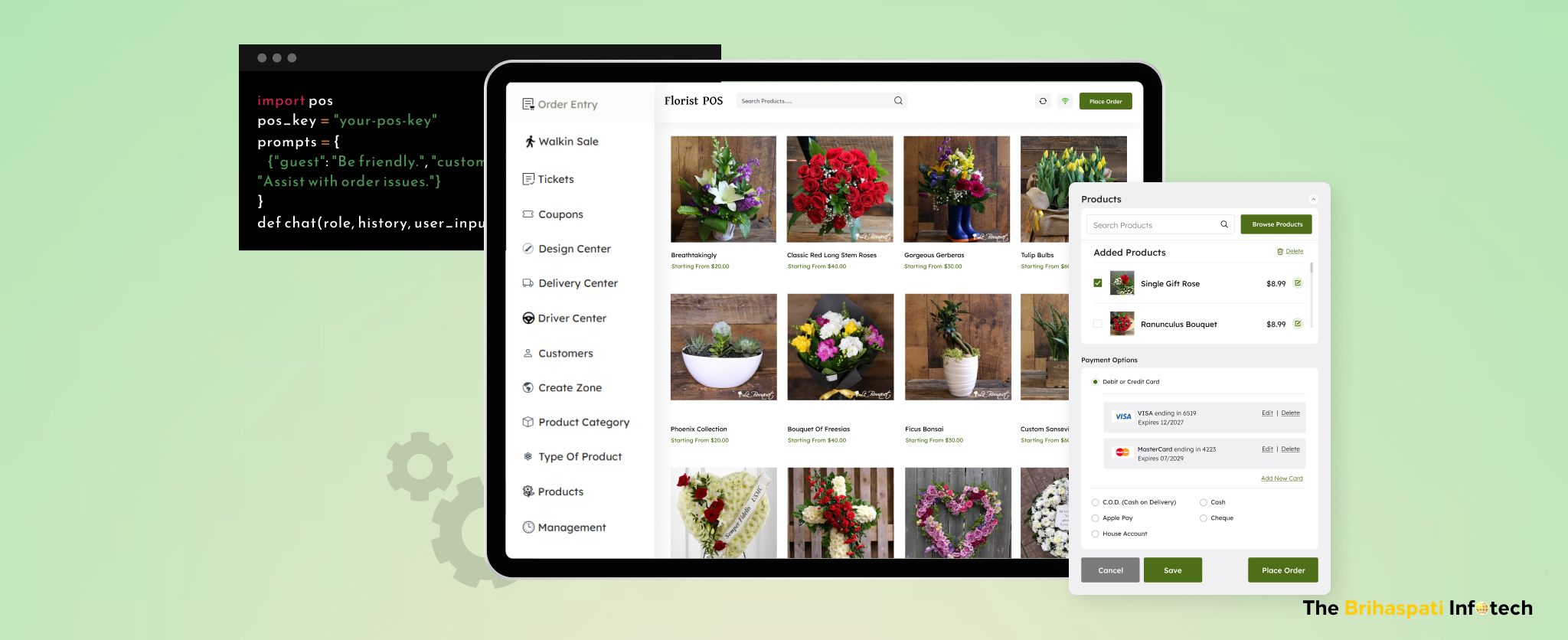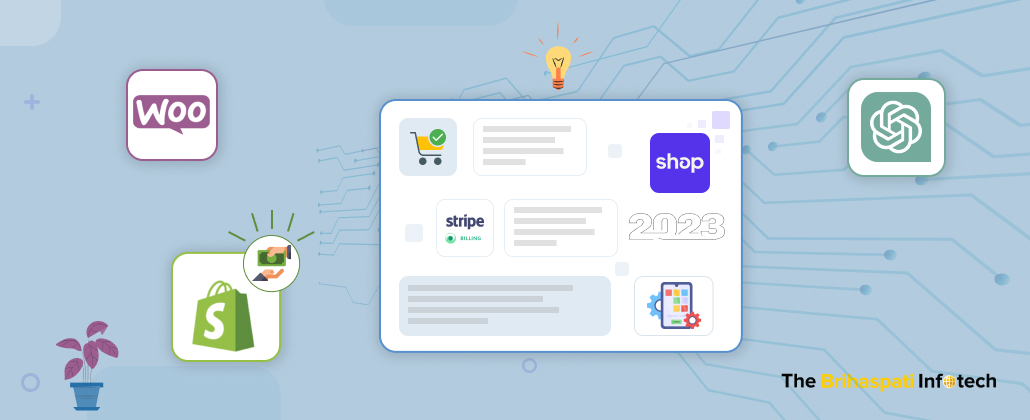
Ecommerce Technology Trends that Changed the Tech Landscape in 2023
In the ever-evolving tapestry of technology, where innovation intertwines with businesses, the year 2023 stands out as a pivotal chapter in the world of digital tech. As a leading Web Development Agency, the closing of 2023 leaves us with a legacy of technological breakthroughs that will undoubtedly continue to shape the way we live, work, and connect in the years to come. In this overall transformative year, two major pieces of the tech puzzle emerge: Artificial Intelligence and the Ecommerce industry. Let’s explore the Ecommerce Technology Trends that particularly defined this year.
Show Stopper of the Year: Generative AI Tools
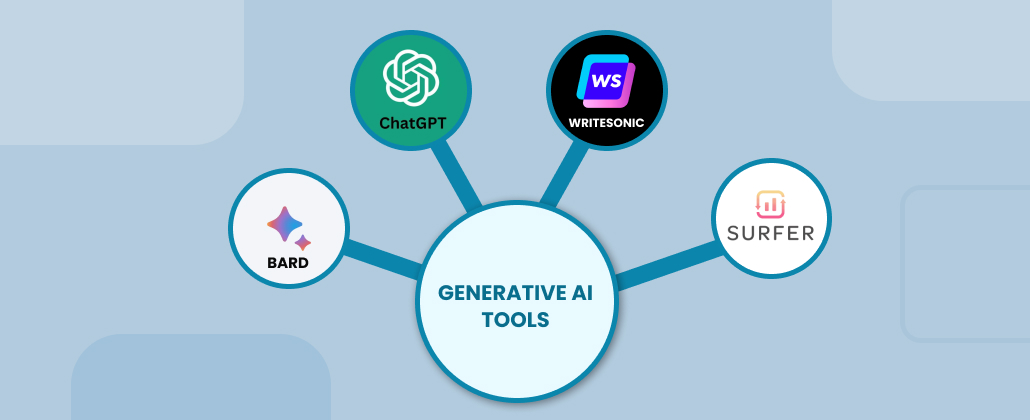
As we conclude 2023, the integration of “AI” has become so ingrained in our daily tasks and activities that it’s challenging to envision completing any task without it. Let’s have a quick glance at the top Generative AI tools that dominated this year:
- BARD by Google is a conversational AI tool, that basically adds a new dimension to natural language processing and interaction.
- ChatGPT 4 by OpenAI, provides businesses with significantly instant answers, creative inspiration, and continuous learning capabilities, making it an invaluable tool for knowledge acquisition.
- WriteSonic basically emerges as a go-to platform for content creation. Specifically, providing AI-driven assistance in generating high-quality written content.
- SurferSeo focuses on skyrocketing organic traffic through AI-driven optimization of content and also improve search engine rankings.
Unveiling Shopify’s Ecommerce Technology Trends

-
Streamlined Payments with Shopify One Page Checkout
Shopify’s recently introduced Shopify One Page Checkout replaces the tedious three-page process, streamlining the entire purchase journey onto a single page. The one-page format ensures shopping smoother for customers with:
— clear order summary
— secure payment processing
For more info on the same, check out our recent blog!
-
Shopify Shop App: A Marketplace for Local Businesses
The Shopify Shop provides a user-friendly platform for local businesses and startups to boost brand visibility and connect with customers. Merchants benefit from it with:
— post-purchase offers
— abandoned cart notifications
— local brand awareness
You can further delve into the details about activating Shop by reading our detailed study on the Shopify Shop App.
-
Boost Recurring Revenue with Shopify Subscription Solution
The Shopify Subscriptions App integrates seamlessly with your Shopify store, allowing you to set up and manage subscriptions directly from the admin interface. By introducing subscriptions as a purchasing option, you can also sell products on a recurring basis.
Woo: A Journey of the World’s Most Customizable E-Commerce
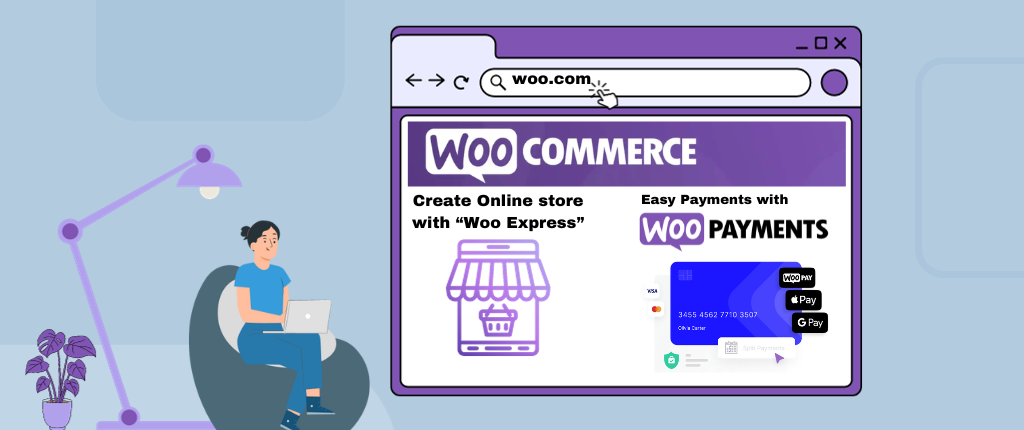
-
Launch Stores At Express Speed with Woo Express
Woo Express is more than a typical WooCommerce plugin; it’s an integrated solution that streamlines the launch of your online store, also offering an overall free trial. It eliminates server setup hassles and complex configurations with:
— managed hosting
— pre-configured settings
— intuitive interface
For further details you can check out our current blog!
-
WooCommerce Payments: An Optimized Payment Solution by Woo
WooCommerce payments, a streamlined payment solution by Woo for WooCommerce merchants, ensures a secure and efficient checkout process. It simplifies payment processing and enhances the overall customer experience for businesses of all sizes with features like:
— global accessibility
— in-person contactless payments
— “pay-as-you-go” pricing model.
-
WooCommerce Product Block Editor with Blocks Expertise
The WooCommerce Product Block Editor along with a redesigned layout, intuitive tabs, and the use of Gutenberg Blocks, it simplifies and streamlines product management, allowing users to focus on specific aspects, such as organization, pricing, and image management.
Adobe’s Latest Development in the E-commerce World
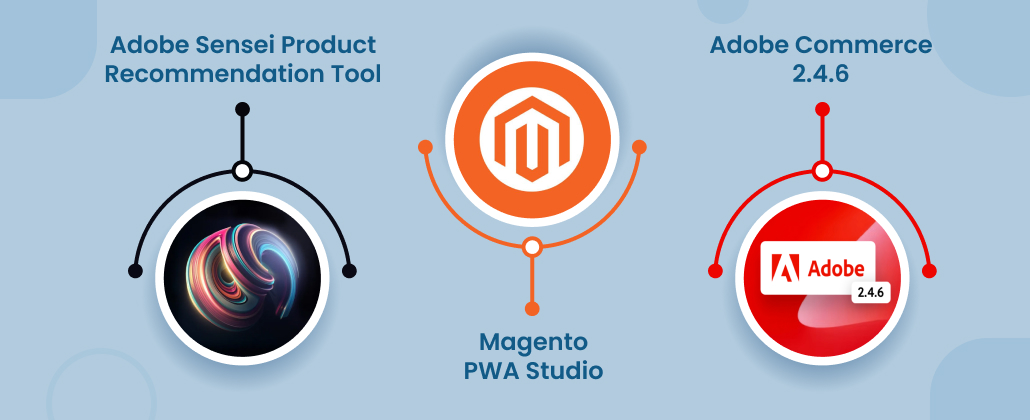
-
Build PWAs with the latest Ecommerce Technology Trends of Magento PWA Studio
Magento PWA Studio , a robust development framework for Progressive Web Apps (PWAs), has undergone a significant technology upgrade, solidifying its position as a leading platform in PWA development. With comprehensive tools, advanced features, and strong community support, PWA Studio empowers developers to efficiently create high-quality PWA storefronts, delivering superior mobile experiences for Magento merchants.
-
Adobe Commerce 2.4.6: An Effective Adobe Commerce Latest Version
Magento Open Source 2.4.6 introduces support for PHP 8.2, emphasizing significant performance and scalability improvements. The release focuses on security enhancements, recommending protective measures like IP Allow Lists and Two-Factor Authentication ensuring a secure and efficient e-commerce experience.
-
Product Recommendation Tool Powered By Adobe Sensei
Product Recommendation Tool powered by Adobe Sensei provide a comprehensive solution for recommending products customized to individual customer preferences and behaviors by using advanced ML algorithms to generate personalized recommendations that are displayed prominently on product pages and other relevant areas of your e-commerce store.
Ecommerce Technology Trends of SaaS This Year
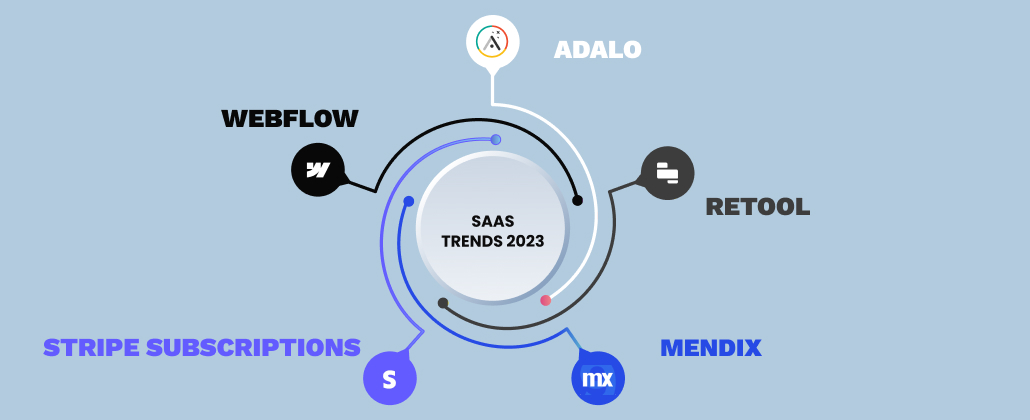
The SaaS industry is constantly evolving, with new Ecommerce Technology Trends emerging all the time. Basically, this year has been no exception, and there have been some major developments that are shaping the future of SaaS.
- Stripe Billing, a prominent payment processing platform, has recently introduced a new feature. This streamlined platform of recurring payments on stripe further allows you to bill and manage customers according to your preferences, all from a single dashboard.
- Low-code development is a rapidly growing trend in the SAAS industry, because it enables businesses to create applications with minimal coding required. Popular low-code development tools in the market this year are Retool, Mendix and Appian.
- No-code tools allow users to design, build and deploy software solutions without requiring programming knowledge. Following are some no-code tools that were in trend this year: Webflow, Appmaster and Adalo.
Let’s Have a Quick Tech Sum Up
In 2023, the technological landscape experienced transformative upgrades, with Shopify, Adobe Commerce, WooCommerce, SaaS, and Generative AI playing pivotal roles. Shopify’s user-friendly interface, Adobe Commerce’s sophistication, WooCommerce’s customization capabilities, the tech evolution of SAAS, and the overall impact of Generative AI collectively reshaped e-commerce dynamics.
At our reputed Ecommerce Development Company, we recognize the significance of these technological milestones. Our custom solutions covering each of these technologies align seamlessly with evolving business needs, ensuring that our clients not only stay current but also future-proof their digital presence. Partner with us and let us know what we can help you with!
Stay Tuned for Latest Updates
Fill out the form to subscribe to our newsletter




